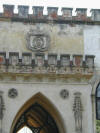ThDr. Karol Kmeťko
Pastoral letter of March 8, 1943
Slovak ecclesiastical officer, from 13 November 1920 diocesan bishop in Nitra, from 18 May 1944 archbishop ad personam, author of religious books and articles, Born in the village yeomanry Dolné Držkovce (*12.12.1875 †22.12.1948 Nitra). Father Pavol Kmeťko District notary in the Dolné Držkovce †1881, allied families Ondrejkovics (specifically devoted grandson of Notary District in Dolné Držovce which were Levites Aladár Ondrejkovič and Tibor Ondrejkovič study on the Small Seminar in Nitra).
The importance of Karol Kmeťko as archbishop was that Slovakia has long since the gave before 2.World War widely recognized religious authority on which to base after Catholics tried to change the political regime. Negative was his old age and the resulting health status. His authority can not question the defendants nor HSĽS, which is Kmeťko let go of the interwar period. From Slovak politicians worked mainly with JUDr. Martin Mičura and politically focuses on the Czechoslovak People\'s Party. With JUDr. Martin Mičura was related to him through a notarial families Ondrejkovič. Significant was his stand against racial legislation and inhumanity against in connection with dealing with " the Jewish question "n Slovakia.

Personality of Archbishop Karol Kmeťko positively recorded in modern Slovak history. Lay involvement in church life, news apostle, focusing on youth and its problems, missionary work and charitable activities showed the public the way a Christian in today\'s world.
ThDr. Karol Kmeťko was one of major signatories Martin Declaration of 30 October 1918. He was one of the eight Catholic priests who participated in the day Martin ratification of the Declaration of the Slovak nation.
September 1941, Prime Minister JUDr. Vojtech Tuka with members of the Deutsche Partei and HG crucially involved in the development and endorsement of government regulation on the legal status of Jews, which de facto redefined medieval discriminatory measures. The practice has expanded beyond the Regulation and against the Jewish religious communities, which in 1943 the Supreme Administrative Court under the guidance of JUDr. Martin Mičura described as unlawful and invalid.
Slovak bishops circular (Pastoral Letter) dated 8 March 1943 which, according to oral tradition conceived ThDr. Pavel Beňuška, Secretary of Nitra Bishop ThDr. Karol Kmeťko. Was drafted, at least after passing through the submission of comments to the President of the Supreme Court of the Slovak Republic JUDr. Martin Mičura including decisions on the date of its publication on 21 March 1943rd.
The final editing done Bishop Dr. Andrej Škrábik.
Archives Episcopal Office in the Nitra
Transcript: Doc. Andrej Mátel
Dear believer in Christ!
Among the problems of today\'s question does not interest Judea and worried many believers, even though official church opinion clearly we landed in the Catholic newspaper on 26 April 1942. Some believe that Judaism is so we go ill, others are, in turn, considers that the procedure against him is permissive even weak.
To you, dear believers in Christ, to correctly assess the current urgent problem and could not be mistaken heretic views, we consider it necessary to bring you the following principles of the Directive.
1. The correct procedure in dealing with each issue is one which is guided by natural law and revelation of God.
The natural rights of the individual, nation and state is to defend itself against that which endangers its life and prevent its heyday. No this is also a natural right of every individual, irrespective of national citizenship is that anyone can not prosecute and punish, without sufficient cause, to be in each case to prove under the applicable legal standards. If the guilty one or more members of a nation, potaz national groups and minorities, of which not even the same offense can impeach a nation, potaz national minority group. Natural law principle calls investigate misdemeanor or crime, in each case and to punish i.
Protect Natural law to exterior these standards is an obligation and the public authorities, etc. She has to manage them. We underline that even the constitutional law of our state, in which law is based and the entire jet law, fully respecting the natural law, which says:
"No one shall be punished for the behavior, which did not legally criminal standard and that the punishment was not already in law or standard invariably intended." / § 82, item 2 mouth. Cust. No 185/939 Sl.z /
This natural law protects and sanctifies and our Savior. Eternally beautiful likeness of the Divine Master of the merciful Samaritans not only the foundation of all ľudomilnej activity, charity and the Samaritans service, but contains in itself the profound truth that our attitude to people should not be affected their speech, state, national or racial competence, since the invidious Samaritan saved hateful Jew in disguise, then surely would not have been entitled to do it wrong just because it is the Jews. A divine champion, added the command, which binds all people, particularly all Christians: ID, and you deal similarly. / 10 Luk, 37 / Indeed, the rule of the natural feel and recognize the old traditional peoples, for them are the symbol of justice, the Women\'s stature and commitment to balance the eyes. This principle was expressed that the right, the reward and punishment should be yvsluhované regardless of the person, whether it is pleasant to us, whether family, friend, or an alien tribesman.
It means that the standards not be prirodzenoprávne never disrupted because each transgression of natural law RDP or later brings destruction, social policy and welfare.
No not be arbitrarily undermined neither the current law, because he allowed the podtína not only the roots of state and national existence, but it causes harm, and sows uncertainty.
Aware of their responsibilities before God and their obligation to protect the natural and zjavené standards of God, we must raise his voice strong, and a warning against the measures, which meat without a proper finding of guilt of each individual affect our spoluveriaci our fellow citizens and others for their personal, family and property freedom. For each citizen, but for every holder of a valid exercise of public authority and a clear nedvojmyselné provision of the Constitution of our nation:
"All the inhabitants without distinction of origin, nationality, religion and occupation, shall enjoy the protection of life, liberty and property." / § 81 ust. Cust. 185/939 Sl.z. /
Particularly in mind the words of Scripture: What you do not want people amounted to you, do not act nor you them.2. In the said declaration, published in Catholic newspapers clearly we landed its opinion on the question of baptism of Jews. We will permit and permit the baptism of each of whom the spiritual issue of testimony, that he wants to become a true Christian, frankly, taking for himself all moral and religious obligation, which the Church its faithful costs. Came to be baptized a second-Jew caused neľúbosť some believers and usually for legitimate criticism of the previous life nekresťana. Here we must refer to the infinite mercy of God, who forgave sinful lapses Magdalene, the heavens opened regarding the robber, taken as mýtnika Matthew the Apostle, is willing to forgive all his sins, if he wants to reclaim the moral life and a new lead. Recently the former mýtnik Matthew kept us the instructive words of the Lord: "Judge not, lest ye be judged, and such rate will be measured, such will be measured. Smeťku And what do you see your brother in the eye, but the beam in his eye not see?" / Mat 7, 1-3 / This reminded those who have declared that supposedly do not follow the church, where there will be one or another; who repelling converts the place to take them with love, their faith and Christian comity word and example confirmed. If acknowledgment of civil rights and the protection of state power to every citizen without distinction of origin and nationality, while his personal guilt is proved - yet svrchovanejšou rate requested to recognize all the rights of a Christian to anyone who cover religion baptism. Only when someone freedom to deny civil rights and Christian, when his behavior, the punishment you deserve.
These are principles which we have verbal and written nesčíselnekrát announced and held. Applaud them, we must now again, when the public became aware of the ongoing measures to these principles has protiviacich.
3. Each period has its own problems. The fate of nations depends on how to resolve them. Severe problems of national, social, religious, waiting for a solution today. When these problems are addressed by justice and love of Christ, cast the nation into war. Since the beginning of this war should be read from the depths of our hearts fervent prayer: From the sea, hunger and war, redeemed us, Lord! Since its beginning does not warn you, dear believers, the heavenly Father to make a fair peace. We believe that the Sv. Father, Pope Pius XII. As well as the First World War, Pope Benedict XV. It is our prayers with those associated, for its motto is: Peace is the work of justice - and that with all his spiritual relationship to the works of peace work in mocnárov world. We support his efforts prayers for permanent world peace, an equitable solution for all problems of mankind. We support them and virtuous life, the faithful following the orders of God, the fulfillment of the laws of justice and love usilujme to merit withdrawal Bica awful war and permanent world peace. When justice will reign in the world, then its ripe fruit: the whole world expected peace.
Supplicant, the providence of God to strengthen you in these difficult times abundance of their gifts, grants you arcipastierske their blessing.
The 8th day March 1943.
ThDr. Karol Kmeťko, bishop of Nitra,
Ján Vojtaššák, Bishop of Spiš,
Paul Gojdič, Bishop of Prešov,
Dr. Pavol Jantausch, bishop, apostle. Administrator Trnava,
Jozef Čársky, bishop, apostle Administrator Košice, Rožňava and Szatmár,
Dr. Andrej Škrábik, koadjutor-bishop of Banská Bystrica,
Dr. Michal Buzalka, Trnava svätiaci bishop, vicar of military power.
This circular should be read in all faiths religious services on the second Sunday post (21st March 1943)
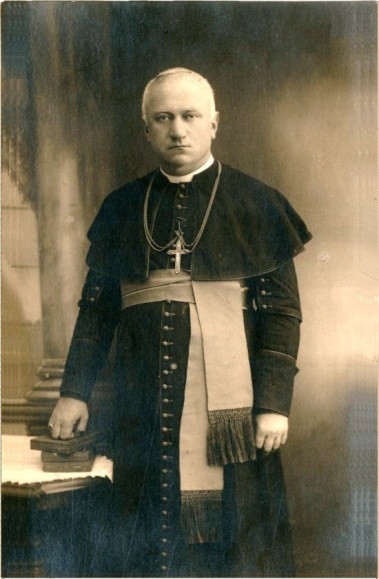
Native of the yeoman village Dolné Držkovce Archbishop ThDr. Karol Kmeťko. Honorary mother of District Notary Stephan I. Ondrejkovič was Antónia Zsittnyan. Anton Zsittnyan of the well-known wealthy Bánovce Catholic family married Marie Kmetyko before 1850. Founding member of Slovak Matica 515. (253) ThDr. Karol Kmeťko.
Joannes * Baptism Bánovce nad Bebravou 27.01.1715, christening parents Steph. Balažovics and C. Catharina, parents Paulo Ondrejkovics and Maria ;
Theresia * Baptism Bánovce nad Bebravou 10.05.1741, christening parents Steph. Balažovics and C.Catharina, parents Petrus Ondrejkovics and Eva;
Paulus * Baptism of Bánovce nad Bebravou 15.11.1761, baptismal parents Joanne Tomkay and wife Elizabeta, parents Joanne Ondregkovits (Ján Ondrejkovič) and Eva;
Paulus * Baptism of Bánovce nad Bebravou 21.01.1767, baptismal parents Joanne Tomkay and wife Elizabeta, parents Joanne Ondreykovics and Catharina;
Anna * Baptism of Bánovce nad Bebravou 24.09.1798, baptismal parents Stephanus Nagy and Maria Blaho, parents Paulus Ondrejkovics and Catharina Pravoticzky ;
Catharina * Baptism Bánovce nad Bebravou 06.04.1801, baptismal parents Stephanus Nagy and Maria Dubniczky, parents Paulus Ondrejkovics and Catharina Pravoticzky;
Joannes * Baptism of Bánovce nad Bebravou 06.05.1801, baptismal parents Joannes Dubniczky and Anna Nagy, parents Paulus Ondrejkovics and Catharina Pravoticzky;
Petrus * Baptism Bánovce nad Bebravou 23.05.1804, baptismal parents Joannes Dubniczky and Anna Morvay, parents Paulus Andrejkovits and Cath. Pravoticzky;
Catharina * Baptism Bánovce nad Bebravou 25.09.1806, baptismal parents Joannes Dubniczki and Anna Nagy, parents Paulus Ondrejkovics and Cath Pravoticzki;
Antal * Baptism of Bánovce nad Bebravou 26.01.1844, parents Antal Zsittnyan and Maria Kmetyko;
Stephanus Ivánka a jeho ctená manželka Anna Zsittnyan, Bánovce nad Beberavou rok 1845. Ctenou pani matkou Obvodného notára Stefana I. Ondrejkoviča bola Antónia Zsittnyan.
István Antal * Baptism of Bánovce nad Bebravou 08.11.1845, baptismal parents Antal Zsittnyan and wife Borbal, parents Péter Andrejkovics (Peter Ondrejkovič) and Antonio Zsittnyan;
Antal István * baptism in Bánovce nad Bebravou March 29, 1846, parents Antal Zsittnyan and Maria Kmetyko;

Janos Zsittnyan *30.06.1850 Bánovce nad Bebravou, jeho rodičia Anton (Antal) Zsittnyan a Mária Kmetyko. Krstní rodičia János Kmetyko a Antonia Kmetyko. Obvodný notár v Dolných Držkovciach Stefan I. Ondrejkovič zdedil úrad po pánovi notárovi Pavlovi Kmeťkovi, svojom príbuznom po matke.
Ignácz *batism in Bánovce nad Bebravou 30.06.1850 parents Péter Antal Zsittnyan and Mária Kmetyko ;
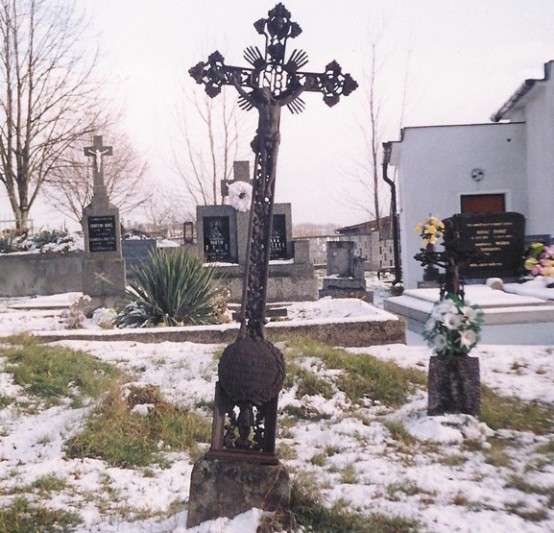
Tomb to Carolus Kmeťko, Grand fathers to District notary chief in in the village yeoman Dolné Držkovce.
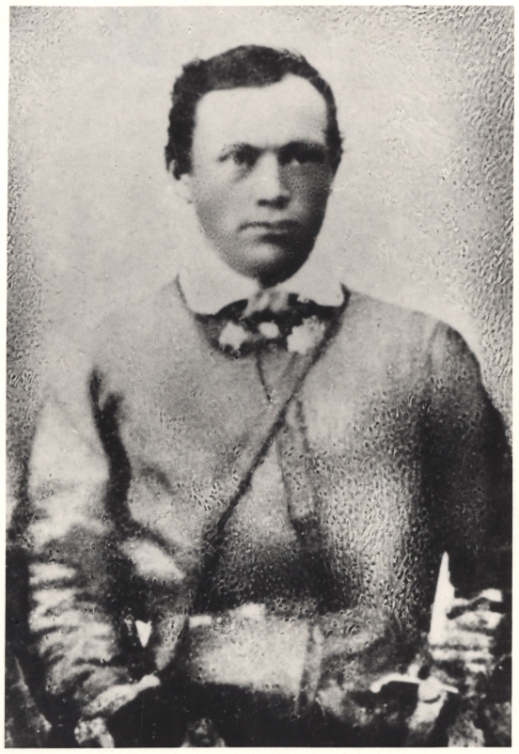
Known native of noble village Dolné Držkovce were in the years 1848-1849 Lieutenant of the Slovak Volunteer Corps Nicolas Dohnányi (*28 November 1824 Dolné Držkovce †02 Juni 1852 Nitra), Ľudovít Dohnányi and son of District notary Stefan I. Ondrejkovič and Lady Anna Sandor de Szlavnicza - Professor and Director Štefan II. Ondrejkovič, District governor Dr. Aladár I. Ondrejkovič, District notary Vojtech Ondrejkovič, Ján Ondrejkovič, Ladislav Ondrejkovič, Jozef Ondrejkovič, Ľudovít Ondrejkovič, Titus Ondrejkovič.
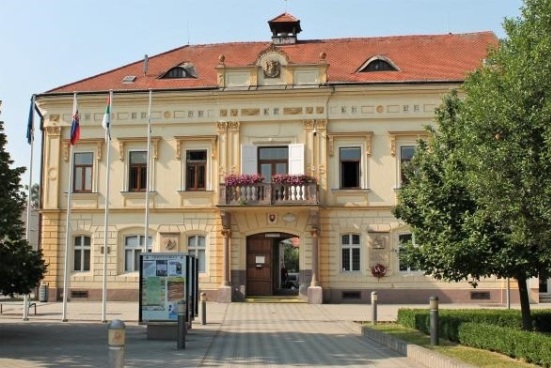
VAS Gereben. Veľký kalendár z roku 1854. Bánovce nad Beberavou. Biro: Blaskovits István. Tkk: Zsittnyan János, Ladeczky József, Andrejkovits Péter, Minarik János. J.: Grauszsky Antal. Ellenőr: Straka Ferencz. Adózsedő: Kmetyko Pál. Orv.: Kazstel Vilmos, Burnstein Józs., Freund Ádolf. Gyógyszerszéz: Bartovits István. Strana č. 230.
Paolus * 1861, Bánovce nad Bebravou, otec D. Paolus Kmetykó, notár v obci Dolné Držkovce, matka Spectabili Da Rozália de
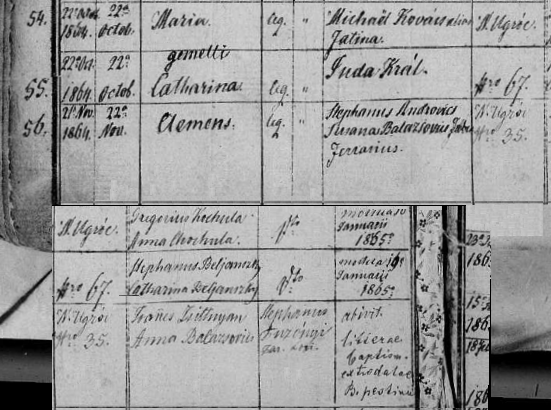
Clemens *22.11.1864 Veľké Uherce No 35. Rodičia Stephanus Androvics a Susanna Balazsovics. Krstní rodičia Joanes Zsittnyan a Anna Balazsovics.
Alexander Josephus Antonius *20.02.1867 Trenčín No 73 rodičia Alexander Androvich Sedria Cott. Trenčín A. a Francisca Kornhoft krstní rod. Joseph Kamin. Capitanus a Antonia Vidna Vavreczky nata Androvic ;
Slovenský politik, právnik JUDr. Milan Ivanka de Draskócz et Jordánföld sa narodil dňa * 25. októbra 1876 v Turčianskom Svätom Martine.
Notár Pavol Kmeťko si za manželkino šľachtické veno zadovážil vidiecky statok. Z jeho osemnástich detí sa dospelosti dožilo päť synov a päť dcér. Po smrti prvej manželky Rozálie našiel štyrom svojim deťom matku, dcéru krčmára z Novej Bane, 19-ročnú Johannu Mixovú, ktorá mu porodila ešte jedenásť detí, Karol bol predposledný z nich, ale keď mal šesť rokov otec zomrel. Matka Johanna, je pochovaná v Dežericiach, zomrela v novembri 1905, keď si robil na univerzite v Budapešti doktorát. Jeho dvaja bratia na nej vyštudovali Lekársku fakultu a už zostali v Pešti. Kňazské povolanie si zvolil brat Pavol, ktorý pôsobil ako spirituál v nitrianskom Malom seminári a sestra Anna Bonifácia, vstúpila do kongregácie vincentiek a bola predstavenou žilinského sirotinca. Jej sestry z otcovho druhého manželstva sa nevydali, predali statok a kúpili si dom v Bánovciach nad Bebravou.
Josephus Marko *07.12.1877 Bošany, jeho rodičia Josephus Marko a Mária Korec ;
Joannes Korec *17.04.1879 Bošany, jeho ctení rodičia Joannes Korec a Anna Marko (príbuzná Sp.D. Márie Sandor Szlavniczai rod. Marko, svokry Obvodného notára Stefana Ondrejkoviča).
Excentrické územie Nitrianskeho biskupstva obchádza maďarské osídlenie okolia Nitry. Diecéza sa vinie územím Považia a Kysúc s centrami v Trenčíne a Žiline. Jej západná hranica umožňuje kontakt s Čechmi resp. Moravákmi.
Pavol Kmeťko teológiu študoval v Nitre. V r. 1882 sa stal zastupujúcim profesorom náboženstva na nitrianskom gymnáziu. V r. 1883 ho vysvätili v Nitre za kňaza. V r. 1887 sa stal riadnym profesorom náboženstva.
Tak isto ako jeho nevlastný brat Pavol, Karol Kmeťko gymnaziálne štúdiá absolvoval v rokoch 1887-1895 na Piaristickom gymnáziu v Nitre. V rokoch 1895-1899 absolvoval štúdium teológie v Budapešti. 2. júla 1899 bol v Nitre vysvätený za kňaza. V r. 1906 získal v Budapešti doktorát teológie.
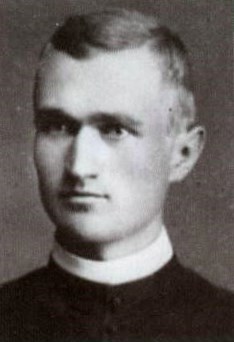
Cousin of the District Notary Stephan I. Ondrejkovič in the years 1888-1902, ThDr. Pavol Kmeťko worked as a spiritual at the Episcopal Seminary in Nitra. In r. In 1902 he became a priest in Dražovce near Nitra. Since 1910 was also an inspector of the diocesan schools.
In Bánovce nad Beberavou in the years 1912 - 1914 worked as a 25-year-old chaplain later secretary of Bishop ThDr. Karol Kmeťko Jozef Tiso.
Related Families Ondrejkovič, A.R.D. priest ThDr. Pavol Kmeťko, died in the year † 1917, in the village of Dražovce, now the city of Nitra. Po matke Rozálii, šľachtičnej bol príbuzný aj Anny Ondrejkovičovej rod. Sandor de Szlavnicza.
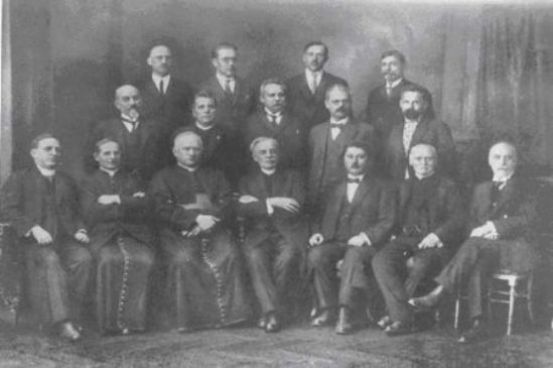
The signatories of the Martin Declaration in the 30.10.1918. Firstly Medvecký KA, J. Vojtašák, J. Janoška, Archbishop ThDr. Karol Kmeťko, S. Zoch, J. Slávik, V. Makovický, in the middle of E. Stodola, F. Juriga ... I Dérer, V. Čobrda, in the top row F. Ruppeldt, Š. Krčméry, E. Bežo.
Začiatkom roka 1919, minister s plnou mocou pre správu Slovenska Dr. Vavro Šrobár vymenoval Štefana Ravasza farára v Horných Šipiciach (neskoršieho dekana v Starom Tekove) za Hontianskeho župana. Jeho brata Dr. Viktora Ravasza vymenoval JUDr. Martin Mičura za vládneho komisára v Leviciach. Štefan Ravasz funkciu neprijal. Región Hontu považoval za veľmi riskantné územie vzhľadom k tomu, že časť hranice regiónu resp. župy bola štátnou hranicou medzi novovznikajúcim Československým štátom a Maďarskom. V celom Honte bolo málo spoľahlivých Slovákov. Okrem Štefana Ravasza bol to evanjelický farár v Teranoch Gustav Koričanský, Samuel Kramár v Lišove a farár v Hontianských Nadošanoch Vendelín Sahulčík a ďalší dvaja - traja.
National newspapers Volume: the year 1922, Issue: 11.06.1922 Chief Servant in Nové Mesto nad Váhom Stephan Schurmann ;
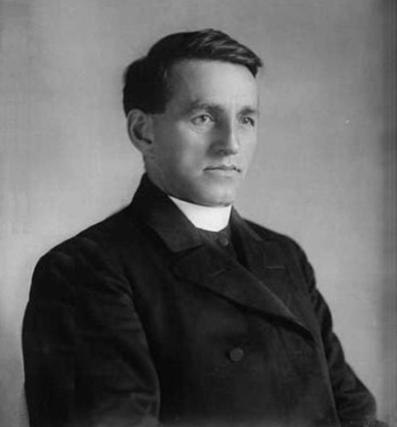
Provost Karol Anton Medvecký (of the Medieval and Medieval Bysterc family), administrator of the Catholic parish church, mayor in Bojnice and ethnographer. Friend and co-founder of the founder of the Upper Nitra Museum Association, Mr. Gejza Turba. Vice-chairman of the Slovak Executive Committee of the Czechoslovak People\'s Party in Slovakia JUDr. Martin Mičura and friend of the Bishop of Nitra ThDr. Karol Kmeťko and Ondrejkovič families. Editor of the Press Authority\'s People\'s Politics. Signatory of the Martin Declaration.
Z nitrianskej diecézy, z Dlhého Poľa pri Veľkej Bytči pochádzal JUDr. Martin Mičura, kľúčový funkcionár katolíckej Československej lidovej strany a minister s plnou mocou pre správu Slovenska. Mal úzke kontakty s nitrianskym biskupom. Vzťahy k českým susedom boli diferencované, politicky najvýznamnejším kňazom a odporcom čechoslovakizmu bol (okrem Andreja Hlinku) Jozef Tiso. Biskup Kmeťko sa snažil zachovať si odstup od politiky, ale kňazom politickú činnosť v zmysle kanonického práva väčšinou povolil až na nedorozumenia so svojim tajomníkom Jozefom Tisom. Okrem iných dlhodobo usmerňoval aj príbuzných rodiny Sandor de Szlavnicza a Ondrejkovič bratov Dr. Viktora Ravasza a JUDr. Stefana Ravasza. Diecéza mala aj vďaka katolíckym Kysuciam, kde ThDr. K. Kmeťko pôsobil v svojich kaplánskych rokoch, o 10 % viac rímskokatolíckeho obyvateľstva, ako priemer. Najviac lutheránov žilo v trenčianskom zavážskom dekanáte v blízkosti moravských hraníc, kde evanjelici tvorili viac ako tretinu obyvateľstva, podobne ako v púchovskom a bánovskom dekanáte. V diecéze nebolo veľa obcí ani žiadne väčšie mesto, ktoré mali ich väčšinu okrem slovenského obyvateľstva zemianskeho pôvodu ku ktorého právam zaujali negatívne stanovisko nová štátna moc aj HSĽS a ľavicové politické strany. Jednalo sa o obchádzanie jeho práv v súvislosti s Občianskym zákonníkom platným na Slovensku a Podkarpatskej Rusi, resp. na Slovensku až do roku 1950. Aj v tejto veci v záujme ochrany jeho práv biskup ThDr. Karol Kmeťko a JUDr. Martin Mičura spolupracovali s českým a moravským p.p. sliezskym klérom.
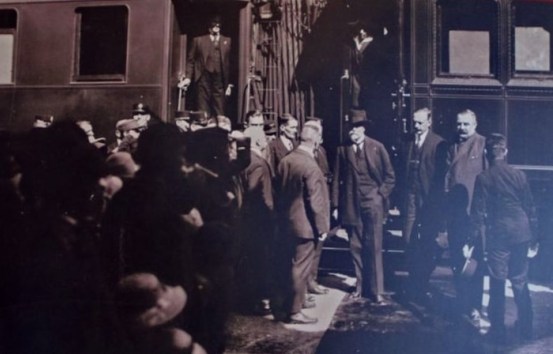
President of the Republic T. G. Masaryk and Minister of Plenipotentiary for the Administration of Slovakia JUDr. Martin Mičura in Žlina at the railway station in 1921 during an official visit.
Aladár II. Ondrejkovics and his brother Tibor were around 1924 students of the Little Seminary in Nitra. Its director was Fudolf Formánek (born May 4, 1892 in Veselí nad Váhom). Member of the municipal council, Managing Director of the Sv. Vojtech, member of the Regional Council of Eagle, Secretary of the Slovak Catholic Circle. During World War I performed in Ilava. The canonist was Andrej Cvinček (born November 27, 1880 in Olešná). He studied in Nitra, Esztergom and the University of Budapest. Member of the Regional Council and Regional Committee, Head of the Chairmanship of the Czechoslovak People\'s Party in Slovakia. The village of Dolné Držkovce was also canonist ThDr. Michal Beňo * 01.02.1880. The then bishop Karol Kmeťko regularly called his little relatives of the Ondrejkovics brothers (mainly the better Tibor player) and played billiards with them. According to our information his pool table is still in the castle in Nitra.
On May 16, 1927, bishop Karol Kmeťko was granted the artificational recognition to the administrator teacher of the Roman Catholic People\'s School in Púchov and an organist in the Roman Catholic Church of All Saints Karol Neumann for nearly 40 years of work in a Catholic church.
The Statute of the Roman Catholic Orphanage and the Old Traveler in Ružomberok was approved on 23 November 1933 by the Regional Office in Bratislava by its President, Dr. Jozef Országh (a relative of the family Sandor de Szlavnicza). In 1933 they were members of the curatorium: Msgre. Andrej Hlinka, Chairman, Anton Mederly, Mayor of Ruzomberok, Vice-Chairman, Vojtech Hodos, Dr. Ľudovít Labaj, as members of the town council, Andrej Janček, Viktor Sliacky, Andrej Scheffer, Dr. Jozef Poliak Škobla, Dr. Stephan Reindl (the family of Ondrejkovic through the marriage of Dr. Karol Reindl), František Hýros (the family of Ondrejkovič through the family of Sandor de Szlavnicza), Alexander Milan, the delegates of the Ruzomberok townspeople and Jozef Tylko as the director of the institute.
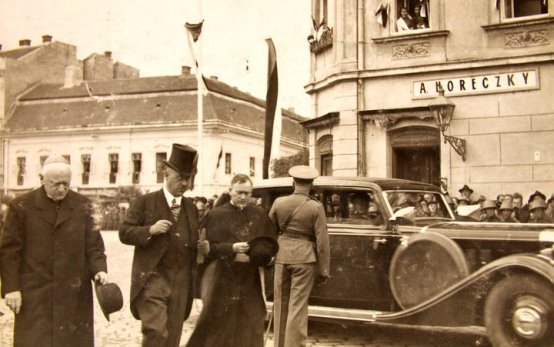
The first Slovak Archbishop His Eminence ThDr. Karol Kmeťko, a native of the Dolné Držkovce and Prime Minister of Czechoslovakia Milan Hodža in Nitra. In the background of his government vehicle.
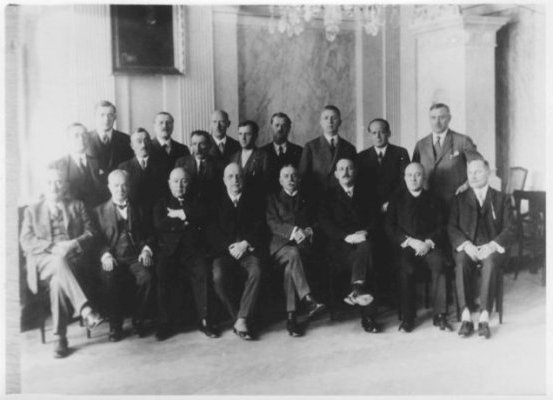
City Council in Nitra. Sow the second from right ThDr canonist Michal Beňo * 01.02.1880 native from the village Dolné Držkovce. He taught at the Small Seminar in Nitra when he studied Aladár II. Ondrejkovič with brother Tibor.
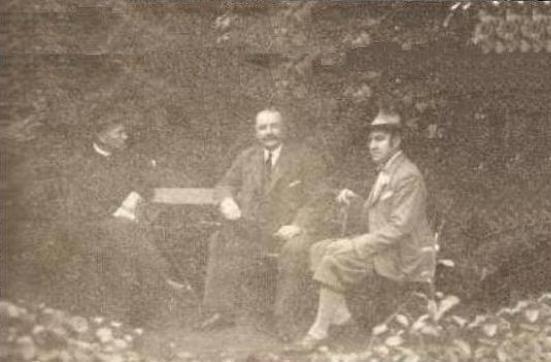
Canonist ThDr. Michal Beňo and Member of the National Assembly in Prague, Chairman of the Czechoslovak People\'s Party in Slovakia and President of the Administrative Court in Bratislava JUDr. Martin Mičura.
Father of the personal secretary of the President of the country Dr. Jozef Országh Karol Neumann was a respected reverend in Púchov, who was the administrator of the local Roman Catholic People\'s School and organist in the Roman Catholic Church of All Saints. His son, Anton, even taught himself at school, and after nearly 40 years of work at the Catholic Church in Púchov, he received an arcipasist recognition from Bishop Karol Kmeťko.
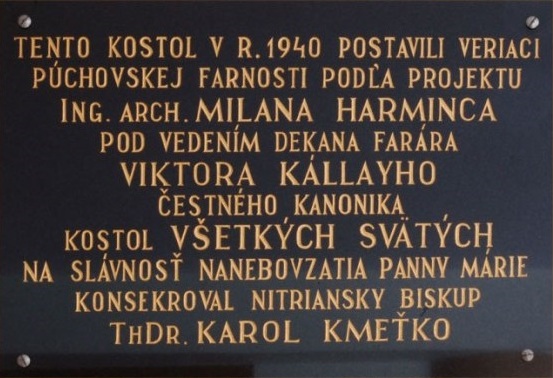
Memorial table at All Saints\' Church in Púchov built in 1940 according to the project ing. arch. of Milan Harminc, consecrated by the Bishop of Nitra ThDr. Karol Kmeťko.
One of the two exits of Swiss economic interests in Slovakia, supported by Archbishop Karol Kmeťko, was the Ecstein malting house in Nitra. It was a Swiss possession and during the entire war there were three Swiss specialists. Their task was to secure the supply of sufficient quantities of malt to Switzerland. The Cukorspol president Rudolf Fraštacký also cooperated with the owner. The second firm in Switzerland owned by Hermann-Göring Werke\'s disadvantageous sale was the Werkzeugmaschienen metallurgical factory Öerlikon Bührle et comp Krompachy district of Spišská Nová Ves. In Spišská Nová Ves, the public notary was the brother of General M. R. Štefánik Dr. Ladislav Štefánik.
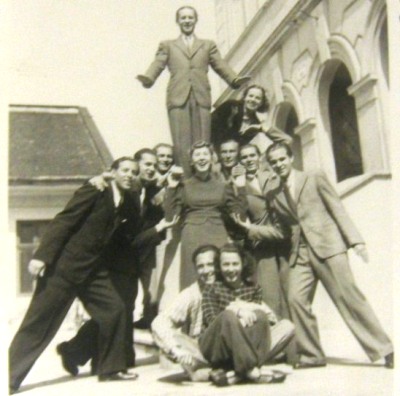
Ensemble Operette of Slovak Folk Theatre in Nitra in the years 1939-1945. Pictured from left to first soloist, tenor Karol Ondrejkovič for example performed in operettas of Gejza Dusík " Blue rose " and " When it blooms in May ", in the Slovak National Theatre in Bratislava he sang in operettas " Blue Rose" soloist Belo Turba. Support files and the first Slovak archbishop ThDr. Karol Kmeťko. Chairman of the cooperative Slovak folk theater was Comes of the Nitra County Sefan Haššík.
His Eminence ThDr. Karol Kmeťko was a supporter of Slovak aviation industry and was in 1941 the early days the company - Factory aircraft Ing. Jaroslav Mráz Nitra.
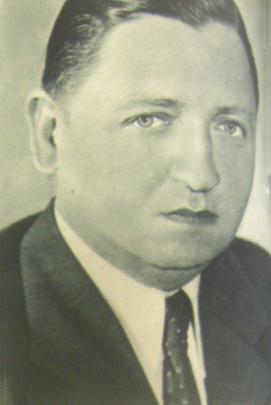
Attorney and Honorary Consul of the Kingdom of Denmark and Sweden in Bratislava JUDr. Stefan Ravasz, relatives of familys Ondrejkovič, Sandor of Szlavnicza, Nozdroviczky and mediated relatives and protectors from JUDr. Martin Mičura and Archbishop ThDr. Karol Kmeťko became 03.05.1944 the main burgess of Bratislava in the coming hardest time for the city.
On 18 May 1944 the Vatican Secretary of State Cardinal Maglione invited himself the Slovak envoy Karol Sidor, and he officially announced that Pope Pius XII. appointed bishop of Nitra ThDr. Karol Kmeťko archbishop.
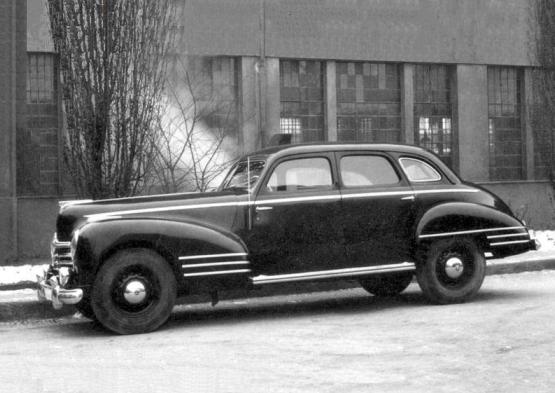
Black limousine Skoda Superb 3000 was manufactured in Kvasiny plant for Bishop\'s office in Nitra, His Eminence Slovak First Archbishop ThDr. Karol Kmeťko in the year 1946.
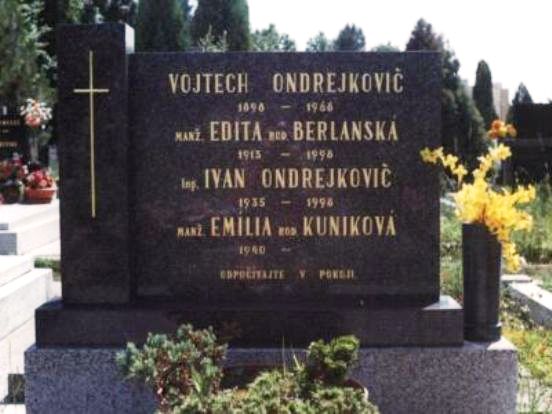
According to our information to the pool table in the castle in Nitra still is. ThDr. Karol Kmeťko opinion was similarly oriented as Dr. Martin Mičura, Dr. Imrich Karvaš, Dr. Viktor Pavella, Dr. Karol Reindl, Dr. Aladár Ondrejkovič, Gejza Victor Jacobus Turba, provost Karol Anton Medvecký a number of public officials resulting from the notarial families. Above the tombstone native from the Dolné Držkovce District notary Vojtech Ondrejkovič. He was also the son of District notary Stefan Ondrejkovič and Anna Sandor de Szlavnicza. He also worked at Jedľové Kostoľany district Zlaté Moravce and Pieštany, where he had a house near the hotel Eden. Near the villa had Madam Elenka Žuborová born Fraštacká.
In September 1945, was His Honor JUDr. Martin Mičura Chairman of the Supreme Court, associate and long-time friend of ThDr. Karol Kmeťko at the State Hospital in Bratislava Ružinov detained by NKVD members and transported to Ljubljanka prison in Moscow.
In 1946 Gizela Ondrejkovičová, daughter of a native of Dolné Držkovce District Chief and subsequently a police criminal judge in Bratislava, Dr. Aladár I. Ondrejkovič (a relative and associate of ThDr. Karol Kmeťko and JUDr. Martin Mičura) worked for the Democratic Party and successfully led the electoral staff of the DP.
In January 1948 was sent from Moscow to Prague by train of a special purpose KGB brigade of 400 men under the command of General Pavel Anatoljevič Sudoplatov.
Gizela Ondrejkovičová left for political exile in Canada on 27 February 1948 through Austria and Switzerland.
On 22nd December 1948 in Nitra, this world was forever left by the native of the village Dolné Držkovce His Eminence Archbishop Karol Kmeťko.
On 30 August was Major cavalry Jaromír Nechanský (colleague and friend of Captain tank Aladár II. Ondrejkovič from 8th Dragon regiment "Prince Saint Wenceslas" in Pardubice) sent on vacation and arrested on September 4, 1949 and charged with treason, spying and association against the republic, for which he was on June 14 1950 sentenced to death, loss of rank and distinction. The appeal was dismissed by the High Court in Brno. He was executed in Pankrac prison on June 16, 1950, together with a student of the Faculty of Law and Science, Veleslav Wahl, in the morning.
In the spring of 1950 was Cpt. aut. Aladár II. Ondrejkovič arrested and imprisoned in a military prison with a special regime for officers in Hradec Králové for refusing the order to prepare staff training regiment under the field regulations of the Soviet Army. Against Cpt. aut. Aladár II. Ondrejkovič and his wife Alžbeta Ondrejkovičová born Ličko illegally held the Higher Military Prosecutor\'s Office in Tábor (VÚ 1815).
Since 1950 he was in the forced labor camp Mírov interned former commander of tank troops 4th Military Area in Bratislava Colonel tank Ján Malár, until 1947 long-time direct commander of the adjutant, officer of the tank troops MA-4 Cpt. tank. Aladár II. Ondrejkovič.
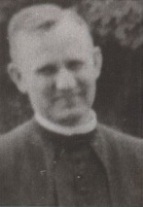
Beňuška Pavol, Mons. ThDr. philosopher and theologian, Catholic journalist, translator, native of Veľké Bielice, compatriot of the Balazsovics and Kedrovich families. Teológiu študoval v Štrasburgu, kde ho 15. júla 1934 vysvätili za kňaza, a kde si ďalej prehlboval vedomosti. Od roku 1939 ceremoniár a tajomník arcibiskupa ThDr. Karola Kmeťka. Biographical data: * 25 January 1911, Veľké Bielice, today part of Partizánske † 1 February 1972, Topoľčany.
Virtual Tour of the Nitra - Nitra castle. When you visit the author at the castle in 2001, he said, religious people, that one classmate (religious person) from his father\'s workshop in the castle still lives in Nitra. In the church at Nitra Castle is buried His Eminence Archbishop ThDr. Karol Kmeťko. When visiting author, but the church was closed.
Notes: General Pavel Anatolyevich Sudoplatov was arrested in 1953 and sentenced to 15 years for crimes against humanity.
Resources: Lt. colonel tank v. v. Aladár II. Ondrejkovič ; Slovak Encyclopedia A - Z ;
Resources: Lt. colonel tank v. v. Aladár II. Ondrejkovič ; Mons. Justín Beňuška *21.sept.1918 Veľké Bielice ; Sidónia Hutárová born Haššíková Dlhé Pole ; Slovak Encyclopedia A - Z ; Registry office of Dolné Držkovce and Bánovce nad Beberavou ; Ján Chryzostom Cardinal Korec ; archbishop Ján Sokol 19.01.2001 Bratislava ;









 back
back 
